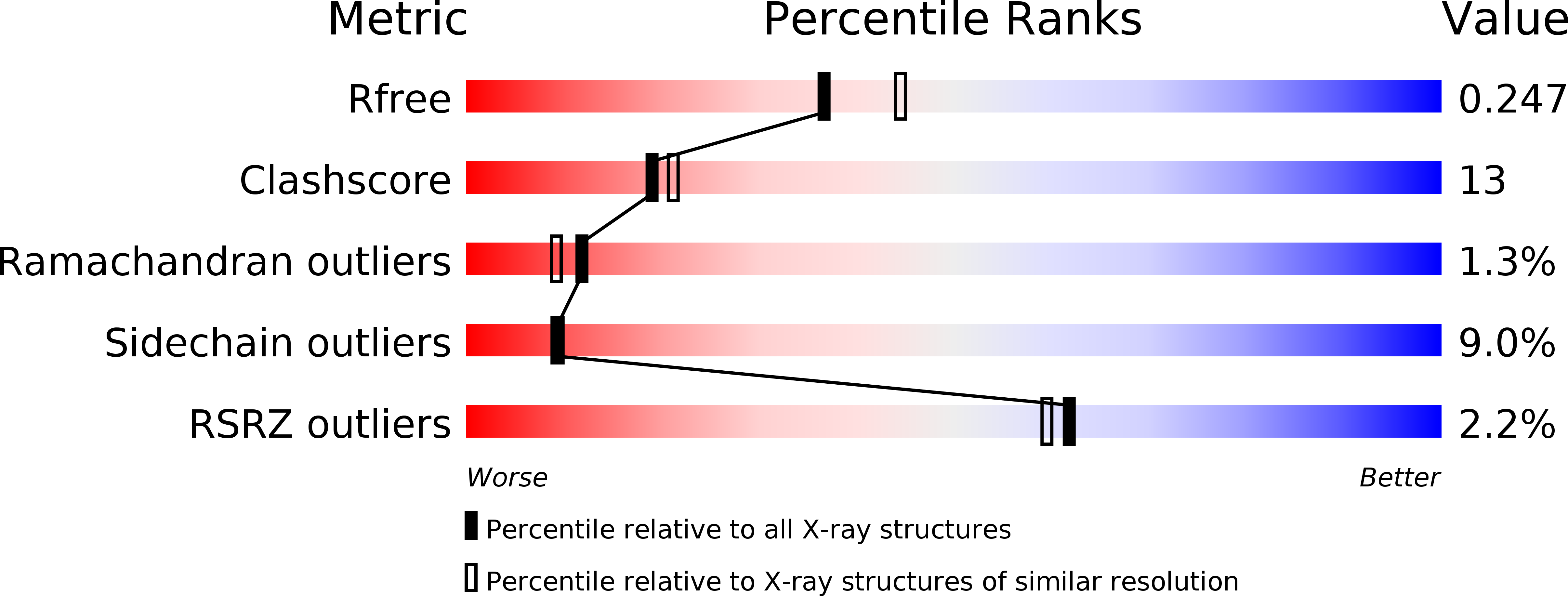
Deposition Date
2009-11-28
Release Date
2010-03-02
Last Version Date
2024-10-16
Entry Detail
PDB ID:
3AAZ
Keywords:
Title:
Crystal structure of the humanized recombinant Fab fragment of a murine; antibody
Biological Source:
Source Organism(s):
Homo sapiens (Taxon ID: 9606)
Expression System(s):
Method Details:
Experimental Method:
Resolution:
2.20 Å
R-Value Free:
0.27
R-Value Work:
0.20
R-Value Observed:
0.21
Space Group:
P 31


